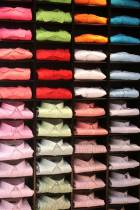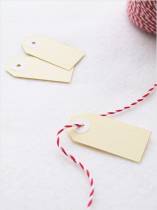Retail Musings
"How can money be the root of all evil, when shopping is the cure for all sadness..." Elizabeth Taylor

See the quality and utility
See the price
Self-select
The customer must be able to do all of the above in the shortest possible time
In the light of the broad layout principles discussed above, it is now possible to focus on where best to place the merchandise and how best to display it. The following notes provide a summary of the principles and key issues that need to be considered.

Colour is what customers see first.
More than anything else, colour makes people stop and look. bright shirtsFor many customers the colour is more important than the size, the style or the price.
It's important to remember that most people, when they pass windows, are not thinking of shopping; their minds are elsewhere and it's quite a challenge to catch their eye and their imagination. Colour invariably does the job beautifully.
COLOUR AS A MERCHANDISING STRATEGY
Retailers promote different colour schemes each season. They introduce new shades of a currently popular colour or select an entirely different palette (selection of colours). Standard colours may be combined in unusual ways. These colour schemes should be featured in highly visible areas of the shop, like shop entrances, department entrances, along aisles, in windows, or on interior displays, so that customers can find them easily. If the colours are part of a national trend, or have been aggressively promoted through advertising, customers will be looking for them.

The easiest sale to structure is one that requires you to look at everything in your shop.
Look at every colour.
Look at every size.
Look at every shape.
Look at every type of product.
Then act.
We're talking about a series of one-day sales, each featuring a particular category of products. These one-day sales can be held one day a week, one day a month, on consecutive days, or even every single day during an entire month.